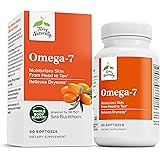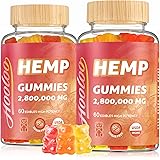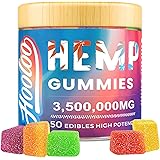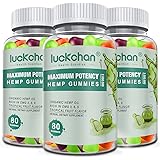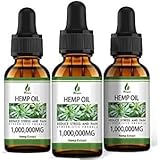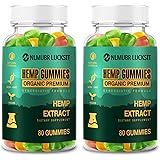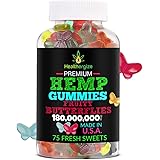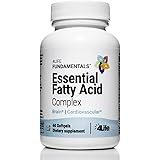Understanding CBD Oil: Beyond the Basics of Cannabidiol
As the accompanying video succinctly illustrates, CBD oil, or cannabidiol, has garnered significant attention for its potential medicinal properties. This non-intoxicating compound derived from the Cannabis sativa plant represents a frontier in wellness, offering a distinct profile from its more famous counterpart, THC. Consequently, gaining a comprehensive understanding of CBD’s mechanisms, uses, and implications is crucial for anyone exploring its benefits.
CBD oil is more than just a passing trend; it is a complex substance interacting with the body’s intricate systems. It is available in various forms, including lotions, oils, and capsules, catering to diverse preferences and application methods. However, its true essence lies in its biochemical interactions, which set it apart from other cannabis compounds.
What is Cannabidiol (CBD)? Unpacking the Compound
Cannabidiol, frequently referred to as CBD, is one of over a hundred distinct compounds known as cannabinoids. These fascinating molecules are naturally present in the Cannabis sativa plant. While the plant is perhaps best known for producing tetrahydrocannabinol (THC), the compound responsible for the psychoactive “high,” CBD operates entirely differently.
The distinction between CBD and THC is fundamental to understanding cannabidiol’s therapeutic potential. Unlike THC, CBD does not produce any intoxicating effects, making it appealing for those seeking health benefits without altered mental states. This non-psychoactive nature is a primary reason for its increasing acceptance in medical and wellness communities.
The Endocannabinoid System: How CBD Interacts with Your Body
The body possesses a sophisticated internal network known as the endocannabinoid system (ECS). This system plays a crucial role in regulating a vast array of physiological processes, including mood, memory, appetite, sleep, and immune function. The ECS comprises endocannabinoids (compounds naturally produced by the body), receptors found throughout the brain and immune system, and enzymes that break down endocannabinoids.
Cannabinoids, whether produced internally or introduced from plants like CBD, interact with these specific receptors. The video highlights CB1 and CB2 receptors, which are integral to the ECS. CB1 receptors are predominantly found in the brain and central nervous system, influencing memory, mood, and pain perception. Conversely, CB2 receptors are primarily located in the peripheral nervous system and immune cells, modulating inflammation and immune responses.
Imagine if your body had a master control system for balance and well-being; that is essentially the role of the ECS. While THC directly binds to CB1 receptors, leading to its psychoactive effects, CBD’s interaction is more nuanced. Rather than binding directly, CBD is believed to influence these receptors indirectly and also interacts with other non-cannabinoid receptors, such as serotonin receptors. This broader interaction profile helps explain its diverse potential therapeutic actions without causing intoxication.
Exploring the Potential Therapeutic Benefits of CBD Oil
The therapeutic landscape for CBD oil is expanding, with numerous studies investigating its effects on various conditions. While research is ongoing, preliminary findings and anecdotal evidence suggest a wide range of potential applications. It is important to note that while promising, many of these areas still require extensive clinical trials to establish definitive efficacy.
Addressing Mental Well-being: Depression and Anxiety
One of the most frequently discussed benefits of CBD oil pertains to its potential effects on mental health, specifically anxiety and depression. Anxiety disorders are widespread, significantly impacting quality of life for millions. Research suggests that CBD may exert anxiolytic (anxiety-reducing) effects by interacting with serotonin receptors in the brain.
Imagine a scenario where daily stressors trigger overwhelming anxiety. Some studies indicate that CBD might help modulate the body’s stress response, promoting a sense of calm. Furthermore, preliminary evidence suggests CBD could have antidepressant-like effects, possibly by influencing neural pathways involved in mood regulation. These areas of study are particularly active, given the urgent need for new and effective treatments for these conditions.
Neurological Support: Seizure Prevention and Beyond
The potential of CBD to help prevent seizures is perhaps one of its most well-established applications. In fact, an FDA-approved prescription medication containing purified CBD has been developed for treating certain rare forms of epilepsy. This represents a significant milestone, demonstrating CBD’s clinical viability in a severe neurological disorder.
Beyond epilepsy, studies are also testing CBD’s effects on other neurological conditions, as highlighted in the video. These include neurodegenerative disorders such as multiple sclerosis (MS), where CBD might help manage symptoms like muscle spasticity and pain. Its anti-inflammatory and neuroprotective properties are central to these investigations, offering hope for improved symptomatic management in patients.
Immune System Modulation and Cancer Research
The scope of CBD research also extends into the realm of immune system disorders and even cancer. Given that CB2 receptors are prevalent in immune cells, it is hypothesized that CBD may play a role in modulating immune responses. This could be beneficial in conditions characterized by chronic inflammation or autoimmune dysfunction. Researchers are examining how CBD might impact inflammatory pathways and potentially help restore immune balance.
In the context of cancer, preliminary studies are exploring CBD’s potential as an adjunctive therapy. This research investigates whether CBD can help alleviate cancer-related symptoms, such as pain and nausea, or even possess direct anti-tumor properties. While these studies are in their early stages and primarily conducted in laboratories, the findings are intriguing and warrant further investigation into the complex interactions between CBD and cancer cells.
Navigating the CBD Landscape: Practical Considerations
Given the burgeoning interest in CBD oil, it is essential for consumers to navigate the market with informed awareness. Since regulatory frameworks are still evolving, product quality can vary significantly. Therefore, understanding key considerations is paramount for safe and effective use.
Product Quality and Sourcing
The source of the Cannabis sativa plant and the extraction methods used are critical factors influencing the quality of CBD oil. Reputable brands often provide third-party lab testing results, which verify the CBD content and confirm the absence of contaminants like pesticides, heavy metals, and residual solvents. Always look for certificates of analysis (COAs) to ensure product purity and potency.
Furthermore, understanding the difference between full-spectrum, broad-spectrum, and CBD isolate products is vital. Full-spectrum CBD contains all the natural compounds found in the cannabis plant, including other cannabinoids, terpenes, and a trace amount of THC (below 0.3%). Broad-spectrum CBD contains multiple cannabis compounds but typically no THC. CBD isolate is pure CBD, with all other plant compounds removed. Each type offers different benefits, often described as the “entourage effect” for full and broad-spectrum products, where compounds work synergistically.
Dosage and Administration
Determining the appropriate dosage of CBD oil is highly individualized and can depend on factors such as body weight, the specific condition being addressed, and individual metabolism. It is generally recommended to start with a low dose and gradually increase it until the desired effects are achieved. Consultation with a healthcare professional knowledgeable in cannabis therapeutics is always advisable before starting any new supplement regimen.
The method of administration also influences how quickly and effectively CBD is absorbed. Sublingual tinctures, placed under the tongue, offer relatively rapid absorption. Capsules provide a convenient, pre-measured dose, though with a slower onset due to digestion. Topicals, such as lotions and balms, are applied directly to the skin for localized relief. Understanding these differences allows for a more tailored approach to incorporating CBD oil into a wellness routine.


